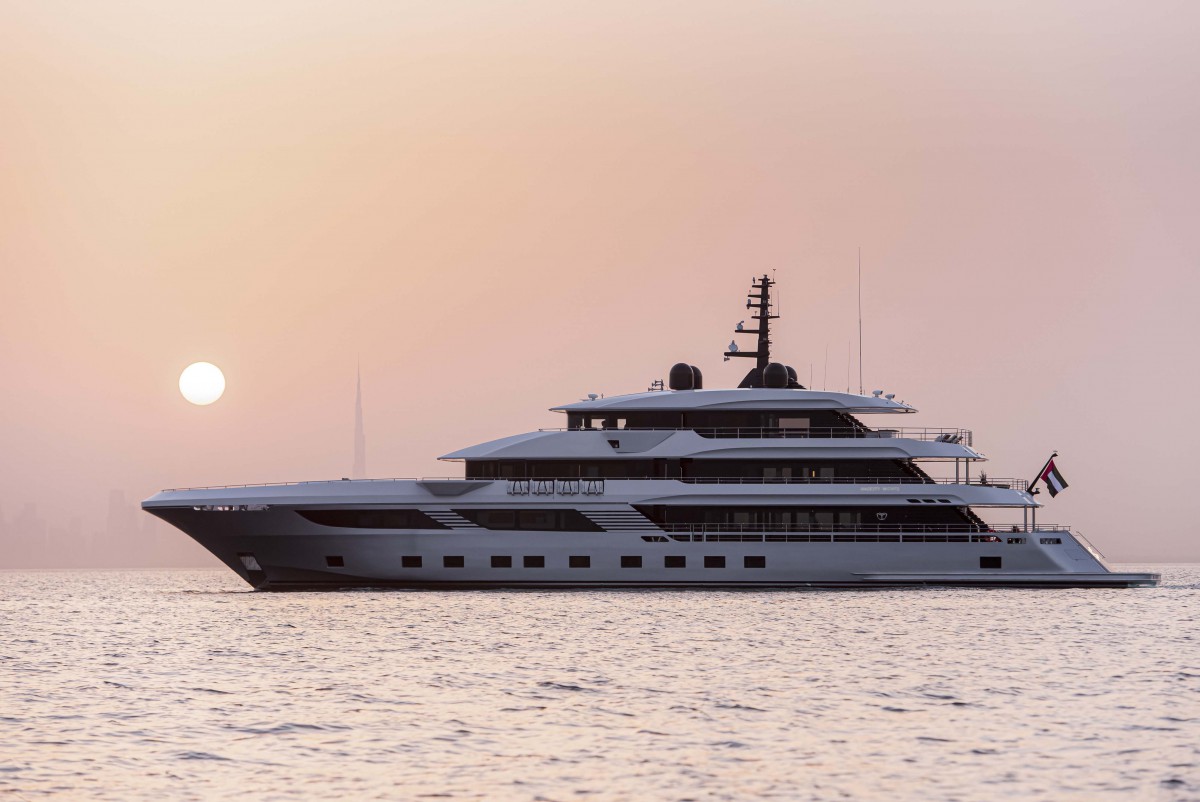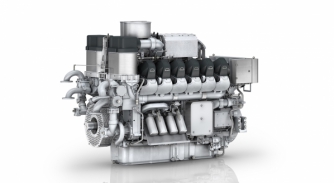Gulf Craft’s decarbonisation strategy
We speak with Gulf Craft executives on the shipyard’s decision to invest in hydrogen-based alternative fuels over methanol…

Gulf Craft has partnered with H2-Enterprises to explore the potential for the use of hydrogen technology in its superyacht fleet. The UAE-based shipyard aims to develop a zero-emissions Majesty yacht that is powered by H2’s Liquid Organic, Hydrogen Carrier (LOHC) energy system.
“Gulf Craft is committed to contributing to R&D for net-zero emission cruises,” a Gulf Craft spokesperson tells SuperyachtNews. “LOHC stands out as fuel with zero emissions. While there's potential for success in various new fuel directions, there's still a lack of solid evidence, even in the automotive industry – this is what we are interested in exploring.”
H2-Enterprises has been working on its LOHC process for over a decade. Now completed and ready for application, the firm’s solution for the storage and transportation of hydrogen could be a pivotal player in the global transition toward cleaner and more sustainable energy sources.
“Our vision is for our yachts to have the minimum environmental impact during these journeys. To achieve this, we're testing a new fuel that is net-zero, low in toxicity, and has a low fire risk,” adds the spokesperson.
At its core, LOHC is a liquid called Marlotherm, with an oil-like consistency that exhibits an ability to chemically bind with hydrogen. This process of chemically binding hydrogen to LOHC involves using a catalyst under pressure, which results in a hydrogenated LOHC that can then be efficiently handled and stored. When the stored hydrogen is needed, it can be released through a dehydrogenation process, closing the cycle and allowing the LOHC to be reused multiple times.
Gulf Craft’s focus on hydrogen stands out, particularly when taking into account that so many other companies are opting for methanol-based alternative fuels to decarbonise their operations.
“While methanol has an energy density only second to MGO (diesel), it has half its energy density, whilst LOHC has just a fifth of MGO’s energy density, making it more energy-efficient,” says the spokesperson. “Additionally, green and blue methanol production is more expensive than LOHC, and methanol is more toxic and flammable. LOHC has low toxicity, even less than diesel, and extremely low flammability, with a flash point of 200 degrees Celsius.
The correlations between energy density and efficiency can sometimes be confusing, as energy density alone doesn't determine a system’s efficiency, but instead relies on various factors. Energy density is the amount of energy stored in a given volume or mass, indicating how much energy a substance holds per unit. Efficiency, on the other hand, measures a system’s ability to convert input energy into useful output energy. This is influenced by factors like the conversion process, technology, energy losses and environmental considerations.
While higher energy density can be beneficial, other factors may make a system with lower energy density more efficient in specific contexts. Evaluating efficiency requires considering the application, goals and overall effectiveness of the system.
However, if the project comes to fruition, it has the potential to offer a multitude of advantages, the obvious one being enabling safe and cost-effective storage and transport of hydrogen. It could also mitigate fluctuations in energy generation and demand and find applications in other industries, including carbon-intensive sectors like petrochemicals and shipping.
There are some challenges to overcome for this to happen, however, one namely being the lack of infrastructure available. According to Gulf Craft, it is not currently looking beyond the R&D phase of implementing the technology in its fleet. “However, our partner, H2-Enterprises, will produce hydrogen from waste, solar, and wind, storing it in LOHC. They plan to collaborate with oil companies to establish LOHC hubs on major shipping routes such as the Suez Canal and in major ports in the coming years, ensuring the availability of LOHC,” adds the spokesperson.
In theory, LOHC is both safer and more economical when compared to traditional hydrogen storage methods. Its compatibility with existing infrastructure and supposedly simple integration into current systems would also address other challenges commonly associated with hydrogen storage and transportation.
If implemented correctly in a superyacht capacity, the introduction of a LOHC-based hydrogen-powered yacht could present a huge leap forward for the industry in its efforts to decarbonise.
“Exploring the technology and potential partnership with H2-Enterprises, which is a pioneering force in the hydrogen and renewable energy sector, allows us to lead in a new era of emissions-free luxury, where opulence and sustainability intertwine seamlessly,” says Mohammed Hussein Alshaali, chairman, Gulf Craft. “We are excited to embark on a significant new milestone in the evolution of luxury yachting and our path to sustainability.”
Profile links
NEW: Sign up for SuperyachtNewsweek!
Get the latest weekly news, in-depth reports, intelligence, and strategic insights, delivered directly from The Superyacht Group's editors and market analysts.
Stay at the forefront of the superyacht industry with SuperyachtNewsweek
Click here to become part of The Superyacht Group community, and join us in our mission to make this industry accessible to all, and prosperous for the long-term. We are offering access to the superyacht industry’s most comprehensive and longstanding archive of business-critical information, as well as a comprehensive, real-time superyacht fleet database, for just £10 per month, because we are One Industry with One Mission. Sign up here.
Related news

MAN announces dual-fuel 175D
Dual-Fuel Methanol MAN 175D in the works with newbuild and retrofit variants planned for 2026
Technology

Is carbon capture all it’s cracked up to be?
Touted by many as a vital part of the solution to achieving carbon neutrality, is carbon capture a panacea or a technological pipedream?
Technology

More sustainability jargon busting
Here, we explain more sustainability terms to equip you with an understanding of this fast-paced area
Technology

The missing superyacht sustainability report
Many industries have overarching sustainability reports, providing insights and accountability. Where is the superyacht equivalent performance assessment?
Opinion

Powering the Future: Caterpillar Superyacht Systems
Caterpillar Inc. has improved what is expected from reliable and future-proofed superyacht power generation
Technology
Related news
MAN announces dual-fuel 175D
2 years ago
Is carbon capture all it’s cracked up to be?
2 years ago
More sustainability jargon busting
2 years ago
The missing superyacht sustainability report
2 years ago
NEW: Sign up for
SuperyachtNewsweek!
Get the latest weekly news, in-depth reports, intelligence, and strategic insights, delivered directly from The Superyacht Group's editors and market analysts.
Stay at the forefront of the superyacht industry with SuperyachtNewsweek



